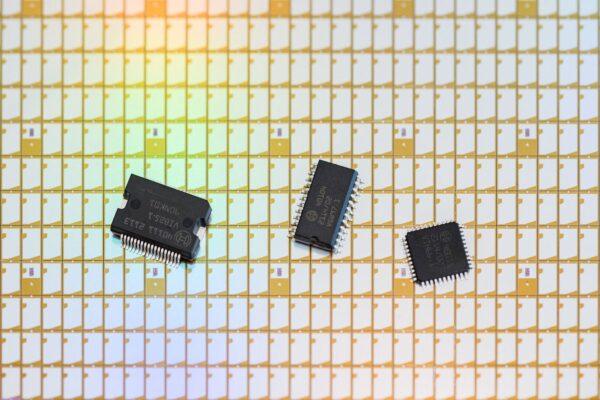US Commerce Secretary Envisions US as Global Leader in Semiconductor Manufacturing by 2030
Commerce Secretary Gina Raimondo is aiming for the United States to emerge as a global leader in the microchip industry through strategic investments.
Gina Raimondo, the U.S. Commerce Secretary, envisions America playing a significant role in the global microchip industry by the end of the decade.
“The harsh reality is that the United States cannot claim global leadership in technology and innovation without a solid foundation,” she stated.
“We must manufacture these chips in America, develop more talent locally, invest in more research and development, and scale up manufacturing.”
Enacted by President Joe Biden in 2022, the CHIPS and Science Act provides around $280 billion in new funding to enhance domestic semiconductor research and manufacturing across the United States. Semiconductor chips, also known as integrated circuits or microchips, are typically made from pure elements like silicon or germanium.
“It’s common knowledge that semiconductors are critical. They power everything—from household devices to military equipment,” Ms. Raimondo noted.
“They’re integral to everything we do daily—from dawn till dusk,” she added.
Currently, according to Ms. Raimondo, there is no local production of these semiconductors. However, the U.S. aims to solidify its position in the chip industry, particularly for microchips essential for AI development. While the U.S. leads in chip design and AI language model development, none of the advanced chips necessary for AI are produced or packaged domestically.
“It requires tens of thousands of advanced semiconductor chips to train a single large language model,” she explained.
Sooner Rather than Later
Ms. Raimondo shared that the federal government has received over 600 proposals from semiconductor companies seeking grants, but a “significant majority” will not be funded. The department is prioritizing projects slated to be operational by 2030.
“We’ve chosen to prioritize projects with an operational timeline by 2030. It’s imperative to note that many worthy proposals have been submitted with timelines post-2030, and we are declining those projects, for now, to maximize our impact in this decade,” she stated.
“It’s not prudent to allocate funds to a project that will come online in 10 or 12 years if it means rejecting excellent projects that could launch this year,” she added.
Ms. Raimondo also disclosed that most semiconductor companies requesting government subsidies will not receive anywhere close to the amounts they sought. Advanced microchip manufacturing companies had requested over $70 billion, but the department is currently engaging in challenging negotiations with individual firms as only $28 billion is available at this stage.
“I inform them that they’ll be fortunate to secure half of that,” she remarked.
“When they finalize a deal and receive less than half of their requested amount, and they express dissatisfaction, it is what it is. We must be firm with these companies.”
U.S. Could Soon Dominate Entire Microchip Supply Chain
By focusing solely on projects with shorter completion times, Ms. Raimondo believes that America “can host the entire silicon supply chain for manufacturing these advanced chips—from polysilicon production to wafer manufacturing, fabrication, and advanced packaging.”
“That’s the goal. When I mention being bold, I don’t mean establishing a few new fabs and calling it a day. We must cover everything,” she stressed.
“From polysilicon to advanced packaging, encompassing R&D, should be done in the United States,” the commerce head added.

“We must not overly rely on any one region for the most vital hardware of the 21st Century. That’s far too risky,” Secretary Raimondo cautioned.
The Technology Race
Last year, the Biden administration expanded restrictions on semiconductor exports to China to hinder the growth of advanced military technology by the communist regime.
The updated regulations restrict the types of cutting-edge semiconductors that U.S. companies can sell to China. Firms from the U.S. are required to inform the government or obtain a license to export advanced semiconductor chips or the equipment needed to produce them.






